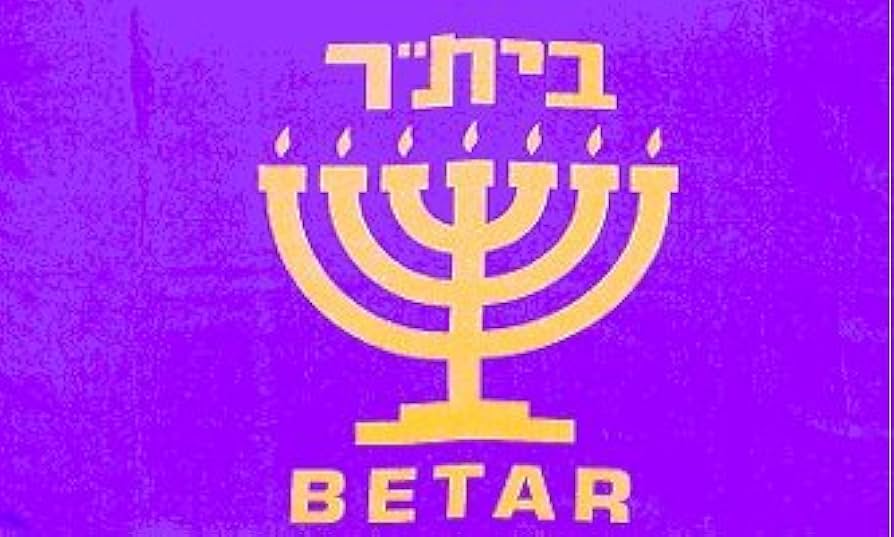|
Getting your Trinity Audio player ready...
|
Edited by: Fern Sidman
Betar, a Zionist organization with a long history of advocacy for Jewish causes, continues to make waves in its efforts to combat anti-Semitism and support Israel. The iconic Zionist youth movement has launched a controversial campaign to identify foreign students in the United States who have participated in anti-Israel protests, with the aim of pushing for their deportation. As reported by The New York Post, the group has compiled a list of approximately 30 foreign nationals from countries including Jordan, Syria, Egypt, Canada, and the United Kingdom, many of whom are enrolled at prestigious universities like Columbia, UPenn, UCLA, and George Washington University.
Ross Glick, the U.S. chapter director of Betar, outlined the group’s methods and goals in an interview with The New York Post. “We have started commencing lists of Jew-hating foreign nationals on visas who support Hamas,” Glick stated. The organization employs advanced facial recognition technology and database analysis to identify individuals who have participated in anti-Semitic protests over the past year. “One of our issues is processing power; there is just so much video to work through,” Glick explained.

Betar has reportedly established communication with individuals expected to be part of the incoming Trump administration, specifically in the Justice Department, to discuss potential actions against those identified. According to the information provided in The New York Post report, Glick confirmed that Betar is seeking ways to align its efforts with Trump’s immigration policies. This campaign gains momentum from President-elect Trump’s vow to take a hard stance on foreign nationals engaging in radical activities.
Trump has reiterated his commitment to deport foreign students who chant in support of terrorism or engage in anti-Semitism. “When I am president, we will not allow our colleges to be taken over by violent radicals,” Trump declared at a recent rally, as quoted by The New York Post. “If you come from another country and try to bring jihadism or anti-Semitism to our campuses, we will immediately deport you.”
Among the names on Betar’s list is Momodou Taal, a British national and PhD candidate in Africana studies at Cornell University. Taal, who has participated in on-campus protests in support of Palestine, was twice suspended, with university officials initially suggesting that his F-1 visa could be revoked, according to the information contained in The New York Post report. However, Cornell ultimately reversed its decision, allowing Taal to remain enrolled.
Glick defended the group’s mission, telling The New York Post that foreign nationals promoting hate speech have no place in the United States. “Our campuses and our streets are filled with violent people who hate Jews and cannot co-exist with Western society,” Glick said, emphasizing Betar’s support for the Trump administration’s proposed deportation policies.

Betar’s initiative has sparked heated debate. Supporters view it as a necessary measure to combat antisemitism, while critics argue it risks infringing on free speech and due process. As noted by The New York Post, the campaign highlights broader tensions over how to address rising anti-Semitic incidents on college campuses without undermining civil liberties.
With its roots in early Zionist ideology, Betar continues to take a hardline approach to defending Israel and combating anti-Semitism. Founded by revisionist Zionist leader Ze’ev Jabotinsky is Riga, Latvia, Russia in 1923, Betar is an acronym for Brit Trumpeldor, (the covenant of Trumpeldor). Joseph Trumpeldor was an early Zionist activist who helped organize the Zion Mule Corps and the Jewish Legion. He fought valiantly in the Russo-Japanese war of 1905 and was the highest ranking Jew in the Czar’s army. Trumpeldor was killed while defending the fortress of Tel Hai in northern Israel in 1920 and subsequently became a Jewish national hero.
Betar was also the last fortress to fall during the Bar Kochba revolt against Roman rule. It was ultimately destroyed by the Imperial Roman Army under the Emperor Hadrian in 135 CE.
According to The New York Post, Glick recently visited Capitol Hill to meet with lawmakers and advance the group’s agenda. Glick’s visit coincided with protests against a Senate vote on a proposed arms embargo on Israel, a measure he vehemently opposes.
While on Capitol Hill, Glick met with several key figures, including pro-Israel Senator John Fetterman (D-PA) and aides to Republican Senators Ted Cruz and James Lankford. Glick received positive feedback during these meetings. “They all gave me the thumbs up and told me how to follow up,” Glick told The New York Post; expressing optimism about the legislative support Betar is garnering.
In February, Staten Island Representative Nicole Malliotakis introduced the No Visas for Anti-Semitic Students Act, a legislative proposal that aligns with Betar’s objectives. As detailed in The New York Post report, the bill seeks to revoke visas for foreign students found to have engaged in anti-Semitic activities on U.S. campuses. Malliotakis emphasized the privilege of studying in the United States, stating, “Entering our country to attend one of our esteemed universities is a privilege, and foreign students who conduct antisemitic activity on our campuses should have their visas revoked.”

Betar strongly supports the measure, particularly as the organization continues to identify and track foreign nationals of promoting hate speech and engaging in anti-Semitic protests. The New York Post report highlighted Glick’s alignment with the Trump administration’s broader immigration policies, which include promises to deport individuals engaging in such behavior.
As indicated in The New York Post report, Betar’s activism has not been without controversy. The organization has faced censorship on platforms such as Facebook, Instagram, and WhatsApp due to provocative statements, including a joke referencing Israel’s historic use of beeper bombs against Hezbollah terrorists in Lebanon. Despite such challenges, Betar remains steadfast in its mission.
Betar’s recent activities highlight the complexities of addressing anti-Semitism in the United States. The group’s stance resonates with supporters who believe stronger measures are needed to combat hate speech and protect Jewish students.
As reported by The New York Post, Betar’s ongoing efforts to influence legislation and build relationships with lawmakers signal its commitment to shaping U.S. policy in ways that align with its mission. Whether through legislative advocacy, campus monitoring, or historical remembrance, Betar’s actions remain a focal point in the ongoing debate over how best to address anti-Semitism and protect Jewish communities in the modern era.





How can I learn more about Betar and it’s activities.?